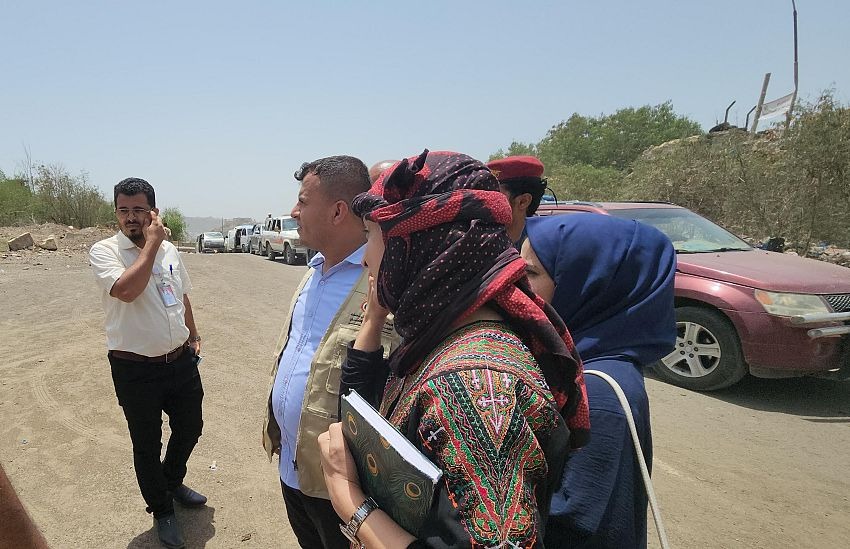


Barran Press
A military official in the Taiz axis, part of the Yemeni Army, briefed the National Committee for Investigating Allegations of Human Rights Violations on Thursday, July 11, 2024, about the procedures in place to monitor traffic flow through the newly opened Kemp-Qasr - Al-Hawban road, east of Taiz city (southwest Yemen).
According to the official Yemeni news agency Saba, the National Committee, headed by Ishraq Al-Maqtari, listened to Brigadier General Mansour Al-Hassani, Chief of Staff of the 22nd Mechanized Brigade in the Taiz military axis, detailing the procedures implemented by the established security committee, comprising law enforcement, security, and administrative entities, responsible for monitoring traffic flow through the newly opened road.
Al-Hassani explained that the procedures involve reception, inspection, verification, and analysis of personal ID data for incoming individuals, ensuring that wanted individuals involved in military battles and assassinations are not exploiting the road.
The military official emphasized the Taiz authorities' commitment to deploying qualified personnel working long hours to serve citizens, facilitate their entry into the city, ensure their safety, and maintain security, stability, and peace within Taiz city.
He stated that these measures are necessary considering the high volume of incoming passengers by bus, reaching 6,000 vehicles daily, from the districts of Sharab, Al-Ta'aziya, and Damanah Khadir, either visiting relatives or returning to their homes, in addition to other governorates across the country.
According to the agency, the National Committee visited neighborhoods in the Sala district, east of Taiz city, assessing the overall situation and traffic flow to and from the city at the security and military checkpoint following the opening of the Kemp-Qasr - Al-Hawban road.
The committee stated that during the field visit, they inspected reception areas and facilities, including information and security sections, observed traffic flow, met with citizens, and listened to explanations from the 22nd Brigade operations and the joint committee teams.
The committee also addressed inquiries regarding guarantees for protecting the human rights of citizens during their travel on the Qasr - Al-Hawban road, in accordance with international humanitarian law, and the measures taken to ensure the right to movement and humane treatment, consistent with national and international legal standards and obligations.
In another development, the National Investigation Committee team, headed by committee member Judge Ishraq, assessed the extent of damage and destruction inflicted on private property and citizens' homes in the Kemp, Qasr - Al-Hawban , and the Faculty of Medicine areas, as well as the complete destruction of public primary and secondary model schools in the area, which previously accommodated thousands of students from the Sala, Cairo, and Al-Ta'aziya districts.